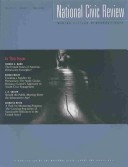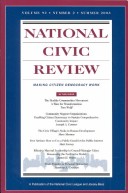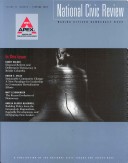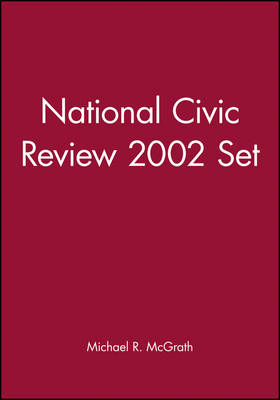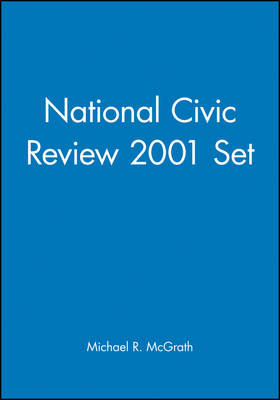J-B NCR Single Issue National Civic Review
9 total works
community building efforts of twenty finalists, this issue delivers
a snapshot report on the experiences of communities that are
redefining the role of citizens and exploring new ways of fostering
civic engagement today. Contributors analyze a diverse range of
successful civic programs including New Hampshire's Civic Profile
initiative, a tool developed to give communities the opportunities
and technical support to assess what they do well and where they
can take action to improve the quality of life, and the St. Louis
County Department of Health's successful implementation of a more
holistic approach to core public health functions. The influence of
evolving societal conditions and their impact on our cities in the
future is also examined, as well as the trends requiring
communities to change in order to meet the public's expectation for
effective and equitable governance.
Articles include:
The Civic Profile: A Case Study of Community Building in New
Hampshire
David A. Bloom
Youth-Led Civic Organizing: Countering Perceptions of Apathy and
Redefining Civic Engagement (a Conversation with Joel Spoonheim of
the Active Citizens School)
Elizabeth Van Benschoten
Engaging the Community in Core Public Health Functions
Derek Okubo, Karen Weidman
Local Office Holders and the Publis
Joseph E. Freeman
The 2000 All-America City Awards
Michael McGrath, Pamela Montgomery
Cities in the Twenty-First Century: The Forces of Change
Roger L. Kemp
Economics of Scale: Business, Neighborhood Development, and
Local Government
John O'Looney
League's 103rd National Conference on Governance, this issue
examines the critical role of philanthropy in building community.
Areas discussed include strategic grant making, the role of
foundations in influencing public policy, foundation initiatives
and the dialogue on race, challenges posed by devolution and
welfare reform, and the role of community foundations and regional
associations of grant makers as successful models.
Articles explore these themes in further detail through an
examination of the importance, often overlooked, of the civic
sector in national policy debates; professional obstacles within
academia that may be discouraging potentially beneficial
partnerships between the civic sector and universities and
institutions; and the growing need for foundations and local
government to provide effective and comprehensive support to
grassroots community organizations.
Also, in a special focus section on Civic Infrastructure,
contributors argue that the mission of civic society to produce
three types of capital--market, public, and social--opens up new
possibilities for reconceptualizing the social contract and the
kind of education we give our young people. They also explore
"study circles" as a new tool for encouraging effective and lasting
opportunities for civic engagement.
